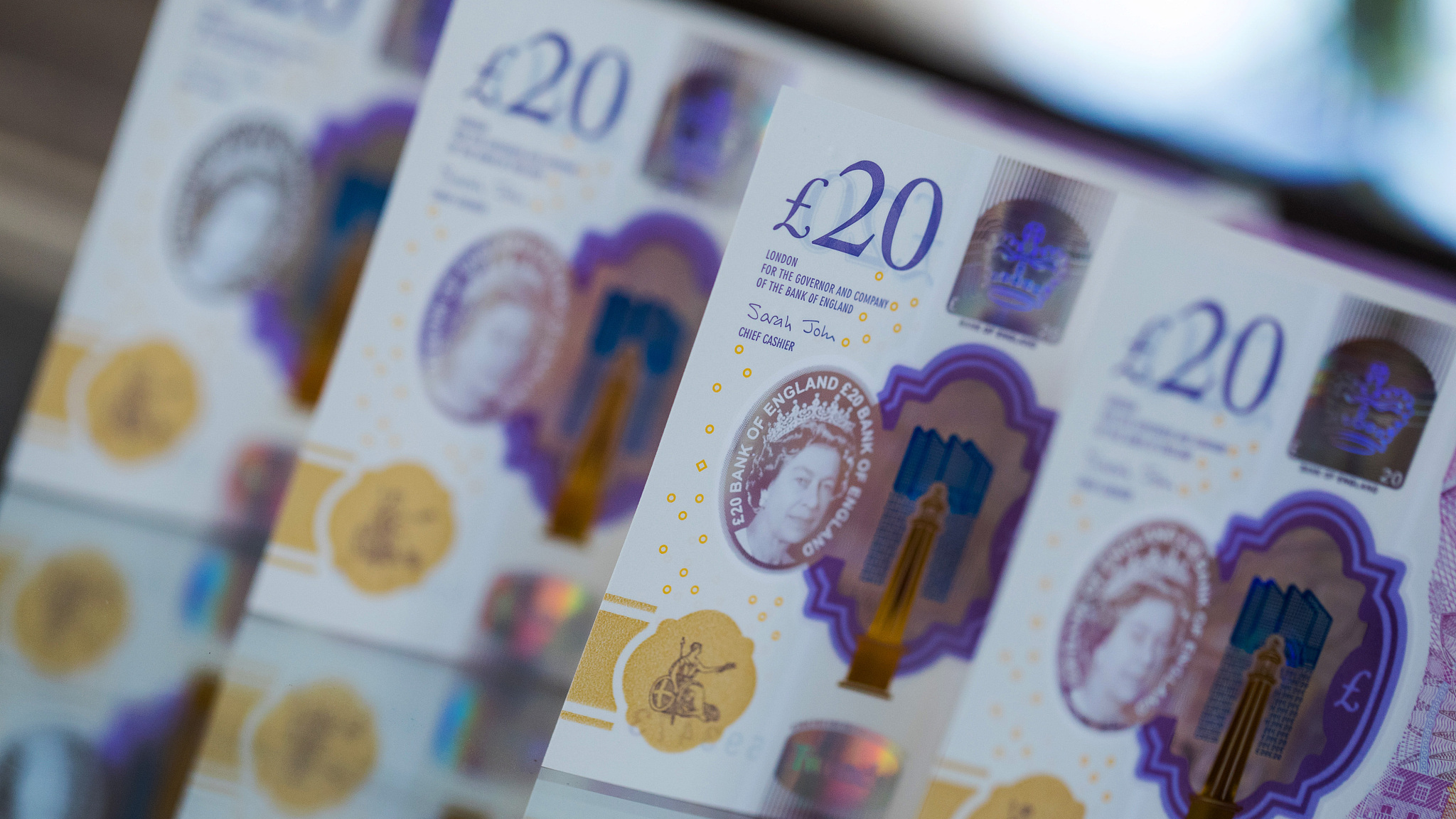
Editor's note: Gene Frieda, a global strategist at PIMCO, is a senior visiting fellow at the London School of Economics. The article reflects the author's opinions and not necessarily the views of CGTN.
Thirty years ago on September 16, 1992, currency speculators forced the British Government to abandon the commitment of pound sterling to the European Exchange Rate Mechanism. In the days that followed. "Black Wednesday," sterling subsequently lost 15 percent of its value. By early 1993, it had lost almost one-third of its value.
The pound's recent weakness – last week, it fell to its lowest level against the U.S. dollar since 1985 – has understandably evoked memories of this earlier episode, leading some to compare the pound to an emerging-market currency. But the comparison is imprecise and arguably inaccurate. Whatever its current economic travails, the United Kingdom retains strong institutions, a thriving democracy, and a reasonable track record of decent growth and low inflation.
So, what exactly has gone wrong, and is the pound really at risk from a generalized loss of confidence in UK assets?
Like almost every other currency except the U.S. dollar and perhaps the euro, the pound lacks attributes of a dominant currency. Aside from trade within the UK and between a few small Commonwealth countries, there is no natural international demand for sterling.
Nor is there any evidence of pounds being held as a store of value. When uncertainty strikes, UK government bonds typically rise in value (current circumstances notwithstanding) but the pound tends to fall against the dollar. The pound lacks the perceived safe-haven properties of the U.S. dollar and a few other currencies that benefit from large stores of foreign assets – as a result of running consistent trade surpluses over long periods.
This means that the pound's value, like that of most other currencies, depends on whether foreign investors consider the government's economic policies prudent.
In one sense, Brexit was no different from any other negative shock to the country's terms of trade: The currency depreciated accordingly. But it also raised concerns about the UK's continued ability to borrow cheaply, given its impending divorce from its largest trading partner.

Liz Truss with supporters ahead of a hustings event, part of the Conservative Party leadership campaign, in Morley, England, the UK, July 28, 2022. /CFP
Liz Truss with supporters ahead of a hustings event, part of the Conservative Party leadership campaign, in Morley, England, the UK, July 28, 2022. /CFP
Initial evidence suggests that these concerns were overblown. The UK's external financing needs, as reflected in its current account deficit, rose from 2.6 percent of GDP during the first decade of this century to almost 4 percent of GDP by 2020. Yet, adjusted for inflation, the UK's financing costs actually fell in the period after Brexit.
More recently, the sharp rise in its energy bill led to further deterioration in the UK's current account, resulting in a record-high deficit of more than 8 percent of GDP in the first quarter of 2022 and significantly higher borrowing costs.
To be sure, the UK is not the only developed economy muddling its way through the aftermath of the COVID-19 pandemic and the ongoing war in Ukraine. Even so, the fact that the UK is not doing worse than some other countries is no excuse for complacency.
The Liz Truss government's decision to cap domestic energy prices for households, in order to limit the impact of higher wholesale prices on consumption, is analogous to the UK's failed exchange-rate peg of 30 years ago. If wholesale gas prices soar, owing to Russia's cutoff of deliveries to Europe or because the UK's own foreign suppliers choose to limit gas exports in order to mitigate the effects of high energy prices on their own domestic economies, the cost of the subsidy scheme could skyrocket. With the government's balance sheet exposed to huge potential losses, its borrowing costs would become closely linked to the wholesale price of gas, over which it has no control.
In other words, the UK is establishing a price peg that will be financially difficult to sustain and politically difficult to remove. Further increases in gas prices would lead to even higher interest rates; given Britain's high debt levels, a deep recession would almost certainly follow. There would be no currency peg to break per se, but sterling would still become collateral damage as foreign financing dries up.
Copyright: Project Syndicate, 2022
(If you want to contribute and have specific expertise, please contact us at opinions@cgtn.com. Follow @thouse_opinions on Twitter to discover the latest commentaries on CGTN Opinion Section.)

